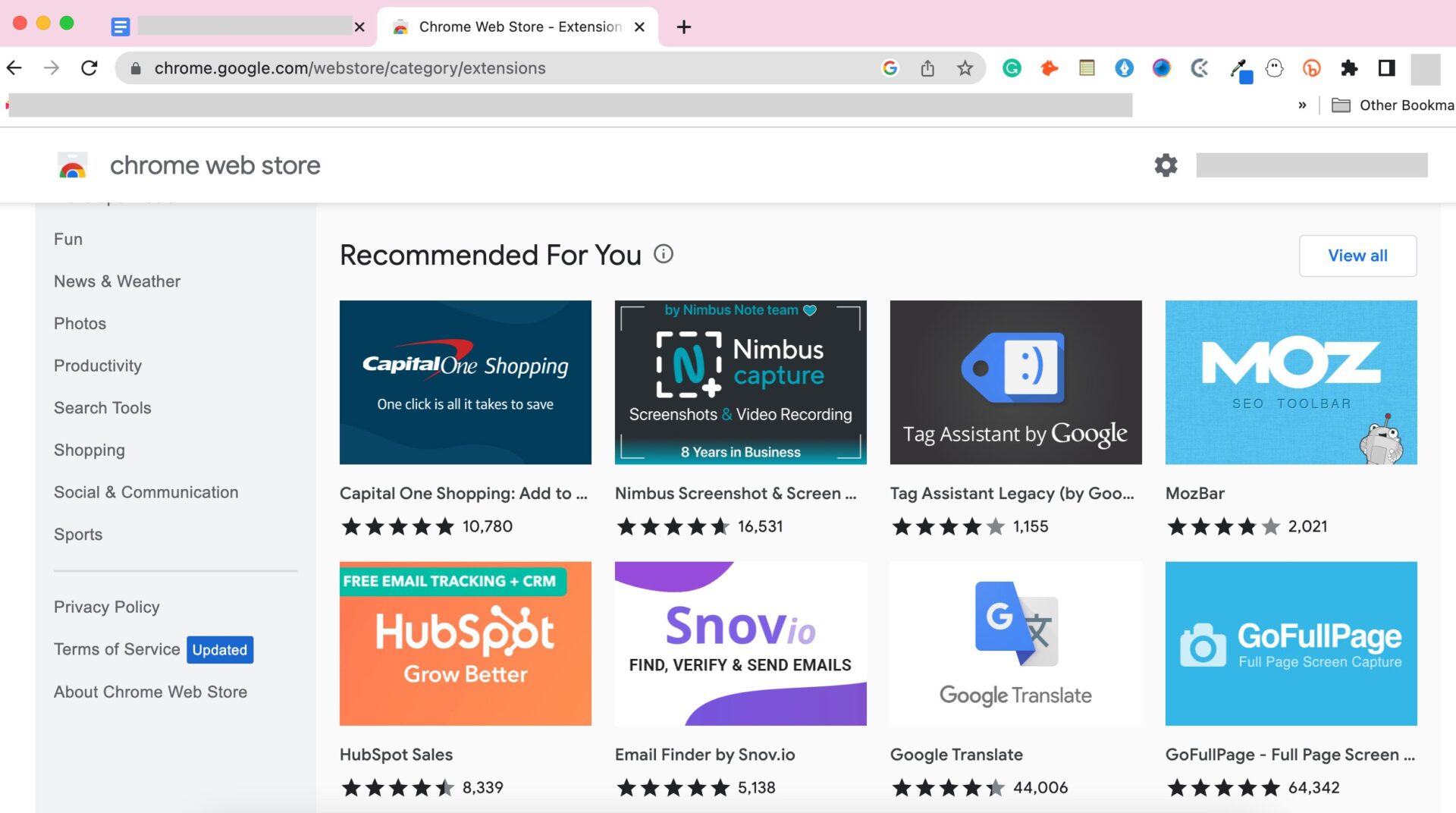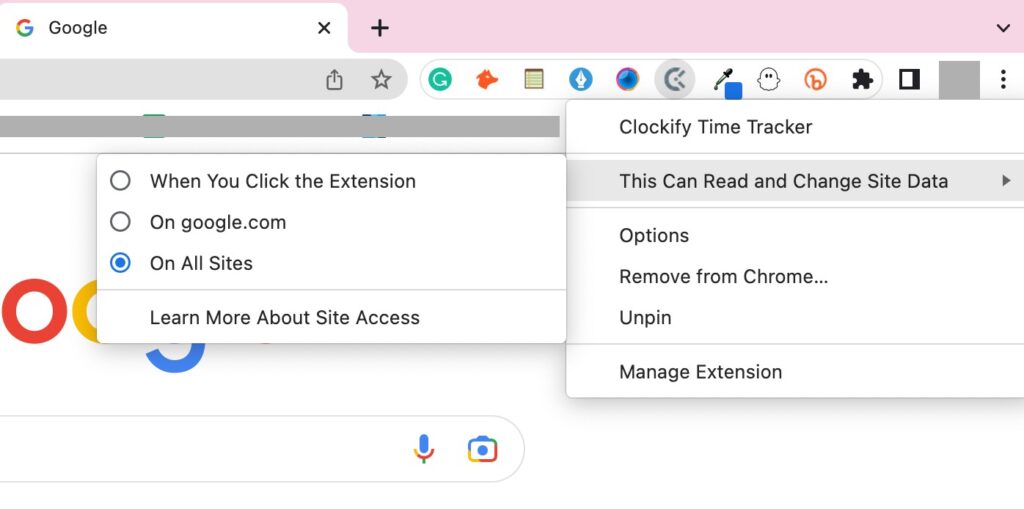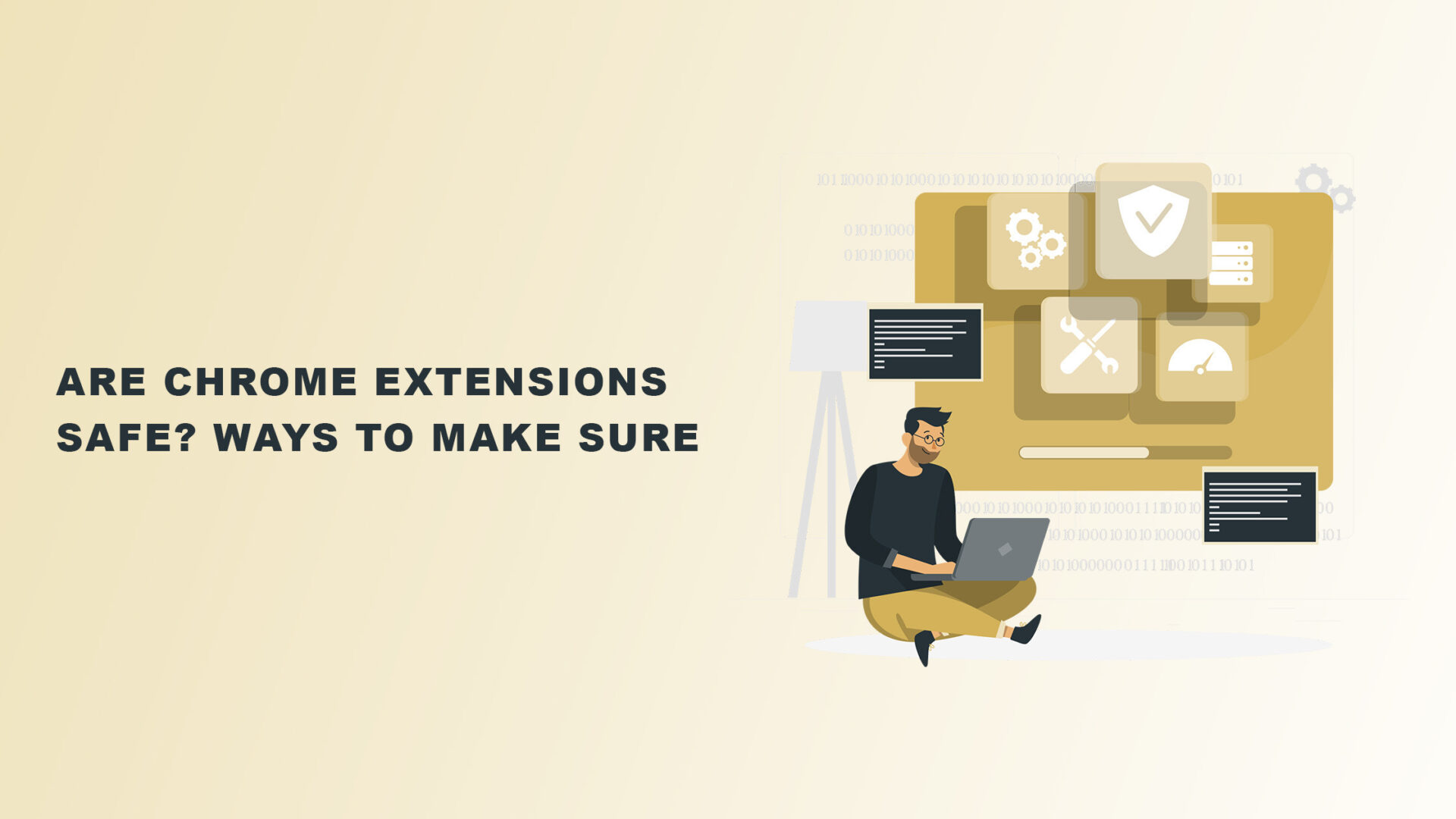Are Chrome extensions safe?
Chrome extensions are the easiest way to do hundreds of things while browsing the Internet. You can take screenshots, grow leads from Facebook, manage all your passwords, block ads, and more.
But the question here arises in many minds: how safe are Chrome extensions?
This article will discuss the best ways to keep your data safe even when using browser add-ons.
The connection between your browsers and personal data
The thing is, you can’t utilize the Internet without using an Internet browser.
With browsers like Microsoft Edge, Internet Explorer, Google Chrome, and Firefox, you can look up information, surf the web, and view videos, among other things.
However, a lot of browsers can access your data without any restrictions.
Not only that, but data brokers also compile all your online activities into a digital profile to send you targeted ads.
Are Chrome extensions safe to use?

With more than 135,000 Chrome extensions, it can be challenging to verify each extension’s safety.
Many people simply assume that extensions made by reputable developers will automatically protect user data.
Yet, you never know and can never tell.
After all, it’s possible for them to do whatever they want with your information.
Still, that doesn’t mean that Chrome extensions are automatically unsafe for use. It depends on the extensions you download to your computer.
For example, if you installed a poorly built add-on, chances are high that it will cause more problems than it solves.
The good news is that there are ways to identify which are safe Chrome extensions for your browser and which ones are malicious.
How can extensions on your browser risk your safety online?
It’s important to remember that while Chrome extensions have numerous benefits, some of them can also be harmful and take covert actions based on your online activities.
For instance, there have been cases where hackers have bypassed Apple’s and Google’s security measures and released malware-infected extensions to monetize your surfing habits.
Others, while not viruses, may steal your data to sell to marketers.
Some browsers also automatically grant all permissions requested by an extension without asking you first.
This can pose a severe risk to your online safety, especially if they are malicious extensions.
Aside from that, there have also been cases where previously safe extensions were updated and turned into adware.
This has resulted in users’ computer resources slowing down.
How to minimize the risk of Google Chrome extensions

By now, the number of risks posed by browser extensions may have spooked you.
However, there’s no need to worry so much.
Now that we know the risks of browser extensions, we can learn how to avoid them.
Below are some of the ways:
1. Try not to add so many extensions
Keep your list of browser extensions to a minimum; more is less when it comes to clutter on your browser.
A while ago, browsers were too basic that people found themselves hoarding popular add-ons like list managers and bookmarking services.
However, browsers today already include many built-in features. So, before you decide to install a Chrome extension, make sure to check if the feature is already built into your browser.
This way, you won’t have to install extra extensions that perform the same functions.
2. Only allow extensions from reliable sources.
Never install an extension from an unknown source. Stick to trusted marketplaces like the Chrome Web Store, Microsoft Store, or Mozilla Add-ons.
Don’t fall for simple or basic-function add-ons, as there’s no telling what sort of data mining they might be doing in the background.
Additionally, you should be wary if you come across an extension that allows you to personalize a service like Gmail or YouTube that an unknown developer has built with zero reviews.
The only time it’s safe to install an extension is if it was developed by a major player like Google or Microsoft.
It’s also vital to check if real people have written reviews and how an extension’s features helped them.
Furthermore, it would help if you verify that they are harmless and don’t have any connection with malicious parties.
While Mozilla employs automated validation checks, Google uses machine learning to detect and block harmful extensions.\
Again, err on caution, even when dealing with well-known browser manufacturers.
3. Remove any unfamiliar or unwanted add-ons.
Make it a habit to regularly check the extensions you downloaded and installed.
You can stay updated and delete unknown and unused Chrome extensions.
If you want to clear away your Chrome, Firefox, Edge, or Safari of unwanted add-ons, check out this step-by-step article here.
Final thoughts
If you note the above tips and remember them, you’ll be able to identify safe Chrome extensions from malicious ones and protect your browser.
The one thing you can do if you are in a hurry, you can check the permissions you grant to a specific extension during installation.
If you’re unsure if the program is safe, it’s best to get rid of it rather than risk getting malware on your computer or stealing your personal information.

